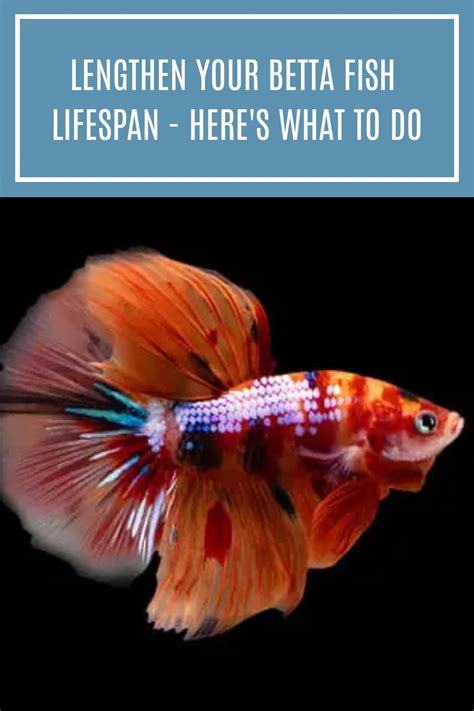The mesmerizing world of betta fish, with their vibrant colors and flowing fins, has captivated the hearts of many aquarium enthusiasts. As these beautiful creatures continue to grow in popularity, one crucial aspect of their care often comes to the forefront: betta life expectancy. Understanding the factors that influence the lifespan of betta fish can help you provide the best possible environment for your aquatic companion, ensuring they thrive and live a long, healthy life.
To delve into the world of betta life expectancy, it’s essential to first recognize that, on average, a well-cared-for betta fish can live for approximately 3 to 5 years in captivity. However, with optimal conditions and meticulous care, some betta fish have been known to surpass this average, living up to 7 years or more. This variability highlights the significance of environment, genetics, and care practices in determining the lifespan of these remarkable fish.
Genetic Factors Influencing Lifespan
Genetics play a pivotal role in determining the lifespan of betta fish. Some breeds, due to their genetic makeup, may be more prone to certain health issues that can affect their lifespan. For example, certain fancy betta varieties, with their elaborate finnage and vibrant coloration, might be more susceptible to fin rot or other diseases due to the selective breeding practices that have emphasized their aesthetic appeal over health.
Moreover, the lineage of your betta fish can also impact their lifespan. Fish from reputable breeders who prioritize health and longevity are likely to live longer than those from less conscientious sources. When acquiring a betta fish, understanding its genetic background and the breeding practices of the seller can provide valuable insights into its potential lifespan.
Environmental Factors: The Key to Longevity
The environment in which your betta fish lives is arguably the most critical factor influencing its lifespan. A well-maintained aquarium with optimal water conditions can significantly contribute to a long and healthy life. Here are several environmental factors to consider:
Water Quality: Regular water changes, maintenance of appropriate water parameters (such as pH, ammonia, nitrite, and nitrate levels), and ensuring the water is free from pollutants are crucial. Poor water quality can lead to stress and disease, both of which can shorten a betta’s life.
Temperature: Betta fish are tropical and prefer warmer waters, typically between 76°F and 82°F (24°C to 28°C). However, sudden changes in temperature can be harmful, so it’s essential to maintain a stable temperature.
Space and Decoration: While betta fish can thrive in small spaces, providing them with a spacious and well-decorated tank can reduce stress and offer them a stimulating environment. live plants, rocks, and driftwood can help create hiding places and visual barriers, mimicking their natural habitat.
Diet and Nutrition: A balanced and varied diet is essential for the health and longevity of betta fish. Including a mix of high-quality commercial pellets, live or frozen foods like brine shrimp or bloodworms, and occasional vegetables can ensure your betta is receiving all the necessary nutrients.
Health Considerations
Betta fish, like all living creatures, are susceptible to various health issues. Regular monitoring for signs of disease, such as labored breathing, lethargy, or visible lesions, is vital. Common health issues in betta fish include fin rot, ich, and swim bladder disease. Early detection and appropriate treatment can significantly improve outcomes and prevent these issues from becoming life-threatening.
Maximizing Betta Life Expectancy: Practical Tips
- Regular Maintenance: Regular water changes and cleaning of the tank are essential for maintaining optimal water quality.
- Dietary Variety: Rotate foods to ensure a balanced diet and prevent nutritional deficiencies.
- Stress Reduction: Provide plenty of hiding places and ensure the tank is not overcrowded to reduce stress.
- Monitor Health: Regularly inspect your betta for signs of illness or stress.
- Avoid Overhandling: Betta fish are not as robust as some other aquarium fish and can be injured by excessive handling.
Conclusion
Maximizing the life expectancy of your betta fish requires a deep understanding of their genetic predispositions, meticulous attention to their environmental conditions, and a commitment to providing high-quality care. By recognizing the critical factors that influence betta lifespan and taking practical steps to address them, you can help ensure your aquatic companion enjoys a long, healthy, and fulfilling life. Whether you’re a seasoned aquarium enthusiast or just starting your journey into the world of betta fish, the rewards of providing optimal care are well worth the effort, as you get to enjoy the vibrant beauty and fascinating personality of your betta fish for years to come.
What is the average lifespan of a betta fish in captivity?
+The average lifespan of a betta fish in captivity is approximately 3 to 5 years. However, with proper care and optimal conditions, some betta fish have been known to live up to 7 years or more.
How often should I change the water in my betta’s tank?
+Regular water changes are crucial for maintaining optimal water quality. It’s recommended to change about 25% of the tank water weekly, though this may vary depending on the size of the tank and the number of fish.
What are the most common health issues in betta fish?
+Common health issues in betta fish include fin rot, ich, and swim bladder disease. Regular monitoring for signs of illness, such as labored breathing, lethargy, or visible lesions, is crucial for early detection and treatment.
Can betta fish be kept with other fish?
+Betta fish are typically solitary and aggressive towards other fish, especially those with long fins or bright colors. They are best kept alone in a tank, though there are some community fish that can be compatible with bettas under specific conditions and with careful introduction.
How can I tell if my betta fish is stressed?
+Signs of stress in betta fish can include rapid breathing, lethargy, loss of appetite, or erratic swimming. Environmental stressors such as poor water quality, sudden changes in temperature, or lack of hiding places can contribute to stress.


